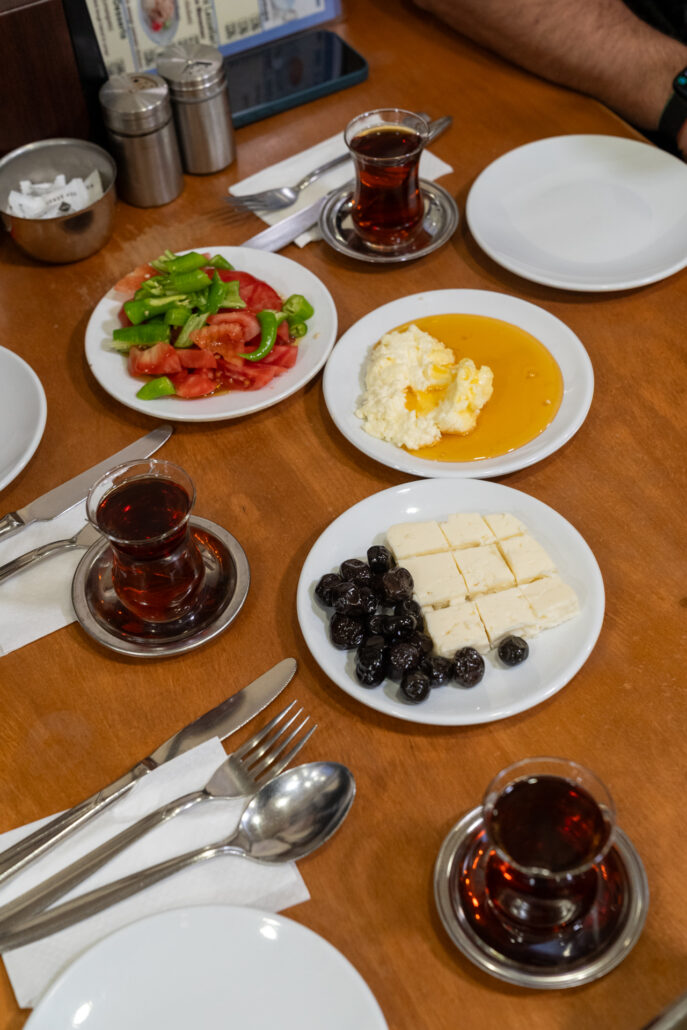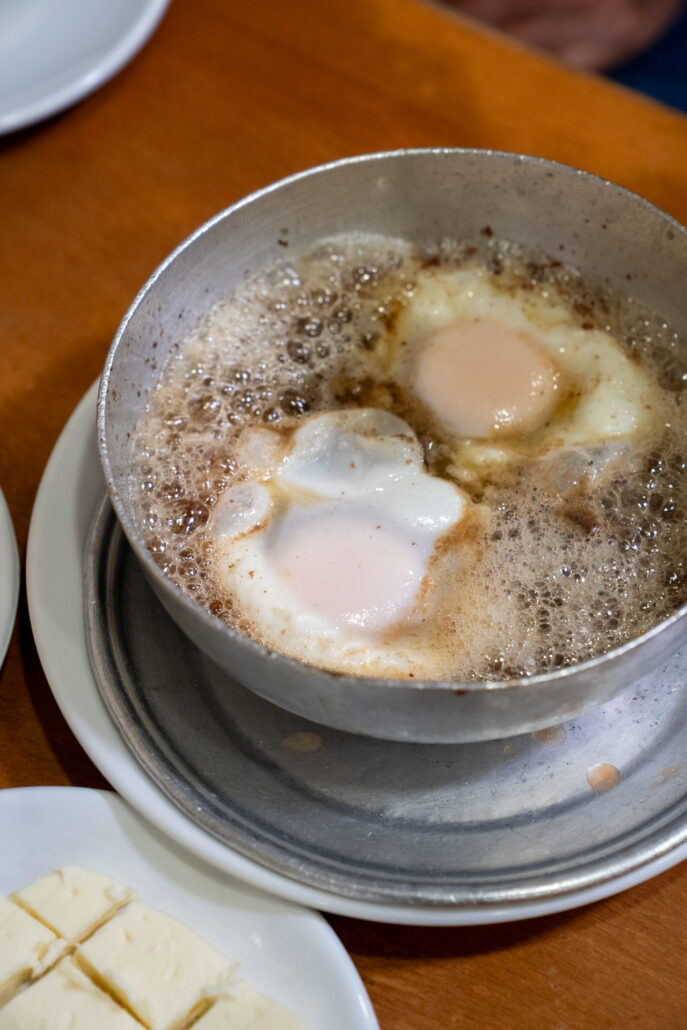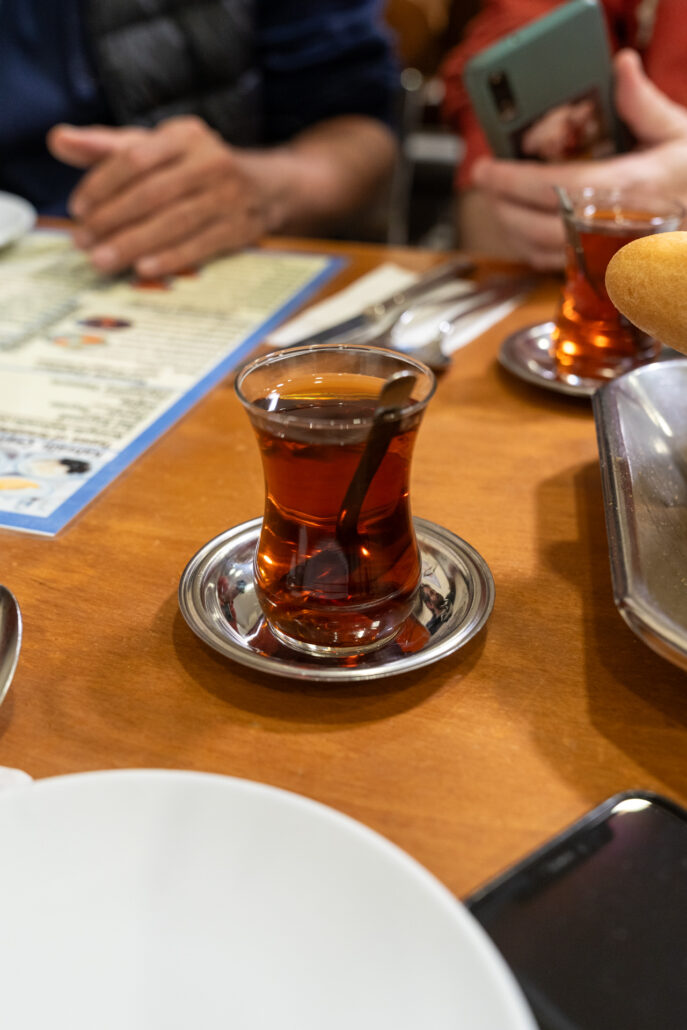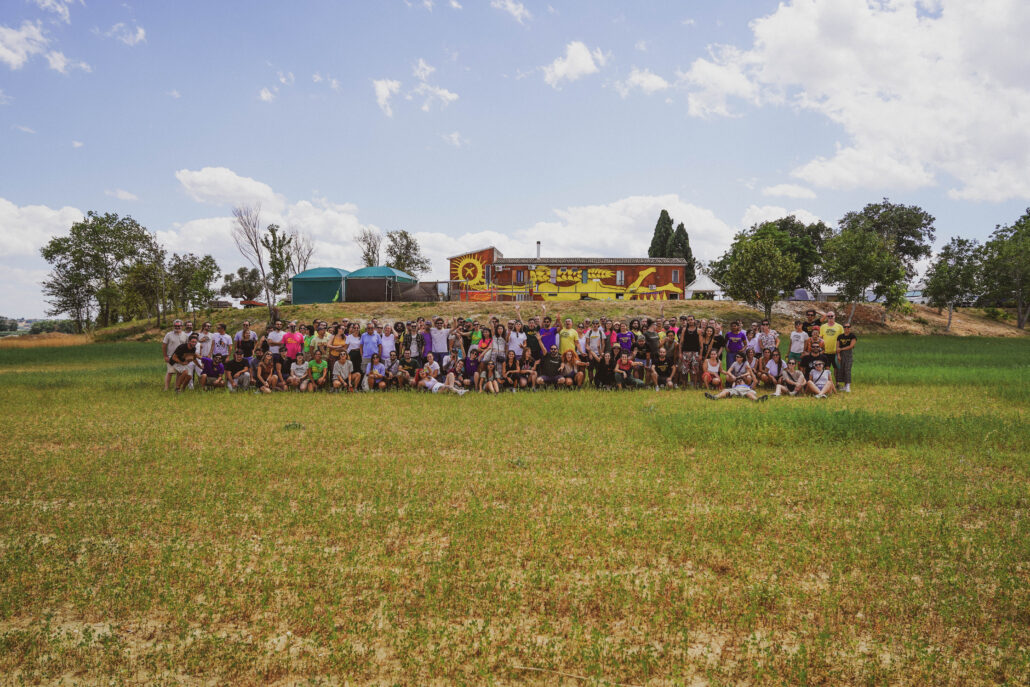Breakfast is king in Turkey
Known as kahvalti in the native language, it is such a cornerstone of the Turkish lifestyle that there are streets fully populated by cafes specialising in the meal in Istanbul and Van, two cities over a thousand kilometres apart at opposite ends of the country.
According to Serhat Gökmen, the manager of Galeyan Restaurantknown for its elaborate kahvalti, the meal is typically enjoyed in large groups on Sundays. It is meant to be an all-out gastronomic and social affair, an antidote to the weekday restraint they begrudgingly adopt for efficiency’s sake.
The wide array of raw and cooked food items laid elaborately on the table – up to two dozen of them in bigger settings – naturally seize the attention of anyone arriving with freshly brushed teeth and a flat stomach. Equally formidable is the customary role it plays. Greetings and jokes aside, one often shares important life updates with the people in their inner circle as spoonfuls of menemen are scooped onto individual plates and böreks are passed around. Gökmen said:
“You save the fun for dinner, but we tend to be more open-minded to discussing ‘businesses’ in the morning. Buying a house or car is a breakfast conversation”.
As for those whose next milestone is still far on the horizon, the spread alone promises a chance to treat and impress family and friends. Create your own Turkish breakfast with the following factors in mind. You will not be disappointed.
The quintessential
Cooks may mix and match with the breakfast items they serve, but there is little room for negotiation when it comes to the beverage, which is why it is the first thing listed here. Kalvalti literally means “under coffee” in Turkish and signifies that the meal is always consumed before coffee is served. Instead, black tea, or çay, reigns supreme. Source local blends whenever possible and make it dark and hot, glaring summer sun be damned.
A blank canvas
Bakeries from the glitziest Istanbul neighbourhood and remote Caucasian mountains alike are on a mission every Sunday, churning out large quantities of bread throughout the morning to ensure the loaves get to every family in the neighbourhood warm. Its purpose is straightforward: to be a vessel for jams, cheeses and egg dishes and other foods that will make a mark on the diners’ palates. The bread should be as fresh as possible, while the choice between fluffy somun ekmek, flat pide or sesame-topped simit is a matter of preference.



Maximise the comfort factor
The smaller plates are fun to nibble in between chatters, but you certainly need something like an egg dish that is warm, juicy and flavourful to capture the sense of nourishment intrinsic to kahvalti. That wholesome feeling has a lot to do with how the eggs are prepared too. While making the classic menemen, scrambled egg with tomato and sweet green pepper, a soft consistency is preferred so it resembles a gentle hug to wake up your loved ones.
Another crowd favourite çirbir is kept extra runny too. The poached egg is served with garlicky yoghurt and an Aleppo pepper-infused butter sauce. Let everything moisturise the bread a bit before it takes you to breakfast heaven. Gökmen also swore by sunny side-up egg with spicy beef sausage suçuk.
“On the other hand, omelette is rarely served. It’s reserved for children”.
The Milky Way
Dairy products introduce a breadth of flavour profiles and textures to kahvalti. Ezine’s aged beyaz peynir, or white cheese, is crumbly and salty. It often shows up in kahvalti alongside semi-hard kaşar, which is pliable and mild. Cottage cheese lovers will be delighted to sample its Turkish variant lor.
Finally, for many kahvalti newcomers, the first taste of kaymak is a defining moment that etches the breakfast experience in their minds. Made by slowly simmering water buffalo milk and extracting the layer of fatty cream on top, it forms a blissfully decadent duo with honey.
Convey a sense of place
Pastries imbue the breakfast spread with an unmissable Turkish character. Many of them hark back to the Ottoman times, not to mention they are simply too delicious to omit. On the savoury side, both gözleme and börek are easy to make at home and extremely adaptable. A golden crust will make any combination of spices, ground meat, vegetable and cheese shine. Katmer is their sweet counterpart, a luscious pocket of ground pistachio and kaymak.
A necessary interlude
Turks take their time while enjoying their Sunday breakfast, and there is only so much carbohydrate and protein one can have in a sitting. That is why vegetables are appreciated to break up the bolder flavours. The most common varieties are tomato and cucumber – raw, sliced and lightly dressed – followed by cooked eggplant and fresh herbs like mint and basil. Being in the Mediterranean region, olives are of course present as an umami-rich snack.
Small touches go a long way
Must-haves aside, the masters of kahvalti understand the art of hospitality lies in the details. This can mean slicing up your vegetables and cheeses right before service to keep them fresh. Quality condiments also help give every morsel an extra oomph. Gökmen takes pride in the jam Galeyan prepares with freshly picked apricots and the watermelon rind preserve that is a local special.
When everyone’s belly is full, their social battery charged, it is finally time for a cup of coffee, freshly heated from a dainty cezve with great strength to save the drinkers from a food coma.





